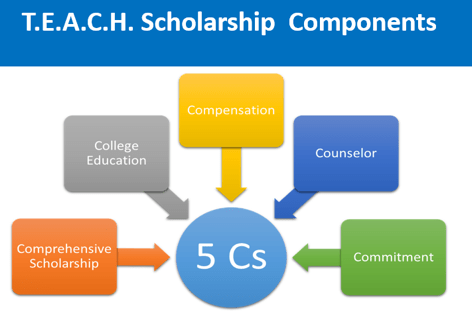It’s an interesting and exciting time to be working in the early childhood workforce area and with our early childhood programs. Decades of research related to the importance of a child’s earliest years and the brain development that occurs laying a foundation for a lifetime of learning are now intersecting with funding to make higher education more accessible for those in the current child care workforce and also those who may be thinking about a career in early childhood programs.
As I’ve long said, it’s simply not possible to have a high-quality child care program without also having a high-quality workforce – individuals with the early childhood competencies to promote healthy child development and also the ability to translate that knowledge to practice.
In 2020-2021, Congress appropriated $53 billion for states to address child care stabilization within the child care market, access to affordable child care for families and investments in the early childhood workforce.[1] For example, over the past 18 months,
- the Coronavirus Aid, Relief, and Economic Security (CARES) Act (P.L. 116-136) enacted in March 2020 included $3.5 billion to states for child care,
- the 2021 Coronavirus Response & Relief Supplemental Appropriations Act (CRRSA, P.L. 116-260) enacted in December 2020 included $10 billion to states for child care and
- the American Rescue Plan (ARP) Act (P.L. 117-2) enacted in March 2021 included additional grants to states for child care: $14.9 billion for child care assistance and $23.9 billion for child care stabilization.
This supplemental funding by Congress makes many options newly available to states. For example, child care early educators have long worked earning low wages, which varies by state and community, but the national median is $12.24 per hour[2] (in North Carolina median hourly child care wages are $11.08).[3] Low wages make it hard to hire and retain a skilled workforce. Low wages in the field also make it difficult to pursue higher education (e.g., an A.A. or B.A. in early childhood education).

However, with supplemental federal child care dollars, it’s possible to both increase wages or provide a salary supplement and offer the current workforce a pathway to obtaining a degree in early childhood education. That’s what the Teacher Education and Compensation Helps (T.E.A.C.H.) Early Childhood® Scholarship Program is all about. It’s not just paying for tuition and books, but also providing counseling and coaching to best promote adult learning styles and individualized support to best navigate work/life/college balance and success.
Throughout the country, there are now more than 300 “Free College” or “College Promise” programs.[4] In North Carolina, we are fortunate to have the NC Longleaf Commitment Grant, which is funded from federal dollars to the Governors Emergency Education Relief (GEER) fund and is a pilot to guarantee that 2021 graduating high school students receive enough financial aid to cover tuition and fees to earn an associate degree and/or credits to transfer to a four-year institution. Also in North Carolina, high school students can earn college credit, tuition-free, to get a jump start on their college coursework through the Career & College Promise (CCP) program.
President Biden is also calling on Congress to fund free community college. What is exciting to me is the opportunity to pair T.E.A.C.H. with free community college. Studies show that access to college coursework is definitely one strategy to ensure students are enrolled in higher education. However, equally important is to ensure enrollment also results in completion (graduation). Unfortunately, for many low-income community college students, life often gets in the way of coursework progression and graduation.[5] But, according to Edith Locke, SVP of Professional Development Initiatives at Child Care Services Association, with the T.E.A.C.H. scholarship program paired with free community college, students gain the best of both worlds – tuition-free access and supports to guide students toward graduation.

North Carolina has operated the T.E.A.C.H. program since 1990. Currently, nearly half[6] of the states throughout the country are operating T.E.A.C.H. as well. Child Care Services Association has started a new program, Step Up to T.E.A.C.H., for states that have an interest in supporting the workforce through the American Rescue Plan Act to implement a short-to-long term early childhood workforce stabilization strategy.
It is time to invest in the early childhood workforce, not only to ensure these early childhood professionals earn livable wages, but also to ensure they have access to higher education coursework and the support needed to graduate. We can do this. The opportunity is ours. High-quality child care depends on it.
[1] U.S. Department of Health and Human Services, Office of Child Care, GY 2021 CCDF Allocations (Based on Appropriations), https://www.acf.hhs.gov/occ/data/gy-2021-ccdf-allocations-based-appropriations
[2] U.S. Bureau of Labor Statistics, Standard Occupational Codes, Child Care, May 2020. https://data.bls.gov/oes/#/occGeo/One%20occupation%20for%20multiple%20geographical%20areas
[3] Ibid.
[4] MDRC, It Will Take More Than Free Tuition to Improve Graduation Rates, May 2021. https://www.mdrc.org/publication/it-will-take-more-free-tuition-improve-graduation-rates
[5] Ibid.
[6] Child Care Services Association, T.E.A.C.H. Early Childhood National Center. https://www.teachecnationalcenter.org/contact/programs-by-state/




